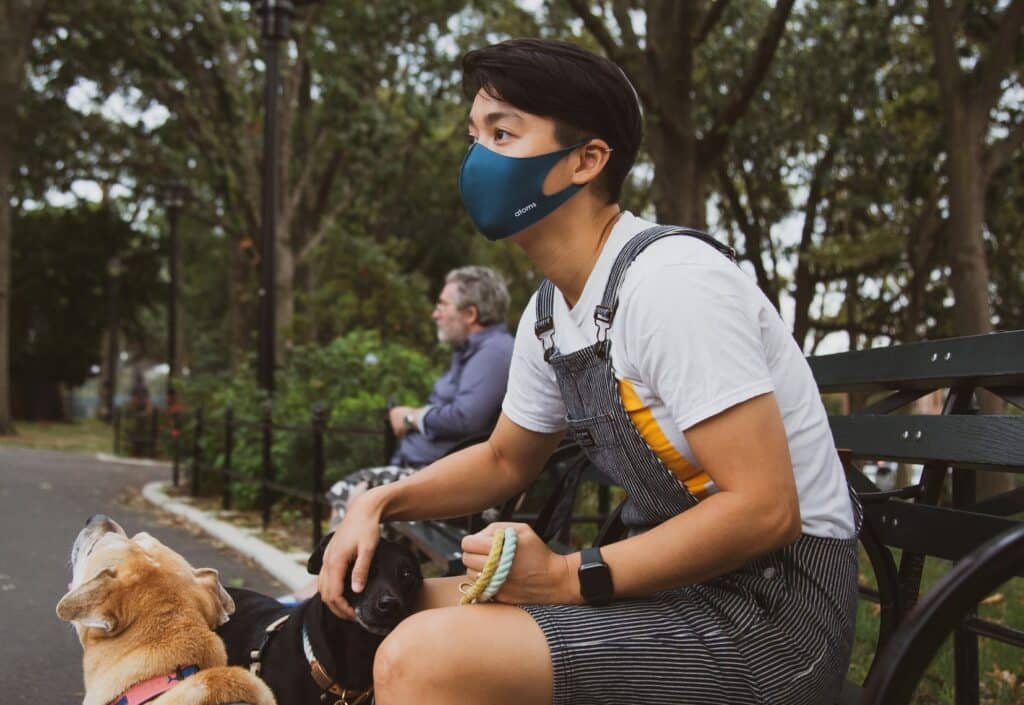The Western Pennsylvania Healthcare News. The coronavirus pandemic has dramatically impacted the mental health of health care professionals and the general population. Rates of anxiety disorder associated with Covid-19 were three times higher in late June 2020 than in the prior year, affecting over 30% of Americans, according to the Centers for Disease Control and Prevention. Overall, 41% of the population reported at least one adverse mental or behavioral health condition, the CDC found.
Healthcare professionals, especially those in front line settings, are particularly at risk for developing post-traumatic stress disorder (PTSD) related to Covid-19, with prevalence as high as 35% according to an October 2020 review of studies. Little wonder. They have been faced with unprecedented demands as they struggle to manage a highly infectious disease with personal risk, limited treatments, high mortality rates and, until recently, no vaccine. They must function professionally and personally under conditions of uncertainty, exhaustion, and often intense fear for themselves and their loved ones. Repeated exposure to CV-19 related trauma and health anxiety set the stage for development of PTSD and panic in at-risk individuals.
Unfortunately, current treatments for PTSD, as well as for the closely-related panic attacks which affect some 27 million Americans every year, are ineffective or unavailable for many people. While psychotherapy is useful for some patients with panic attacks and PTSD, the long duration of treatment can pose obstacles for access, affordability, and adherence over time. High dropout rates are reported for talk therapy, particularly the exposure-based therapies commonly used to address PTSD as well as panic. Commonly used medications, particularly the antidepressants, often produce unwelcome side effects that lead to adherence problems and high dropout rates. Benzodiazepines are not recommended for PTSD or for extended use, and carry risk for abuse and dependence.
Panic symptoms include shortness of breath, racing heart, chest tightness, dizziness, and lightheadedness, as well as fear of impending death and feelings of losing control or ‘going crazy. These symptoms can be misinterpreted as a medical emergency, only to be later ruled out as a cardiac or neurological event. Patients are unfortunately told their symptoms are ‘all in your head,’ or are referred out to a primary care or medical specialist for testing or follow up.
Faced with increasing rates of PTSD and recurrent panic attacks, health systems and health plans need new approaches to help their employees and members with treatments that are safe, effective, and produce minimal side effects. Amid limits on in-person care, they also need treatments that can be delivered remotely.
Fortunately, new treatment approaches now exist, based on multiple published studies addressing an important underlying physiological factor in panic attacks and PTSD. Surprisingly, this emerging science shows that patients with panic attacks and PTSD exhibit hypersensitivity to carbon dioxide (CO2). In experimental lab settings, most panic and PTSD sufferers react with pronounced fear and physiological distress when exposed to a single breath of air with high CO2 concentration. Subsequent research has shown that treatments aimed at normalizing respiratory rate are effective and are now available in clinical practice.
A recently developed, FDA-cleared non-medication digital therapeutic called Freespira targets the symptoms of both conditions. During twice-a-day 17-minute sessions that are conducted at home, the patient inhales and exhales in sync with rising and falling audio tones and adjusts their respiratory volume to keep their exhaled CO2 in the normal zone, guided by a graphical display on a tablet. Weekly telehealth coaching provides support, encouragement and guidance to help patients achieve their breathing targets.
Several peer-reviewed studies have confirmed the regimen can reduce or eliminate symptoms of panic disorder and PTSD in just 28 days. The most recent study, which was funded by Highmark Health and conducted at Alleghany Health Network in Pittsburgh, found that 68% of treated patients were in remission one-year post-treatment and 91% had significant symptom reduction as long as one-year after treatment. Research on PTSD at the Palo Alto VA measured significant improvement in over 80% of participants and remission in 50% of participants.
Coincidentally, the Highmark study also found the treatment significantly lowered health care costs. Following a claims analysis that documented sharply higher medical costs for individuals with panic disorder compared to matched controls, the study found a 35% reduction in any-reason medical costs for the year after treatment with Freespira. Pharmaceutical costs were slashed by 68%, and Emergency Department costs fell by 65%.
Until we have brought Covid-19 completely under control, it is good to know that health care organizations have options for helping their employees, members, and patients deal with the most acute mental health impacts of the pandemic. Just as transmission of the virus can be prevented by the adoption of new habits like mask-wearing, we are learning that the acute symptoms of panic attacks and PTSD can be prevented with new self-management skills.
All we needed was to take a fresh look at the problem.
Robert Cuyler, PhD, is Chief Clinical Officer of Freespira, Inc.



